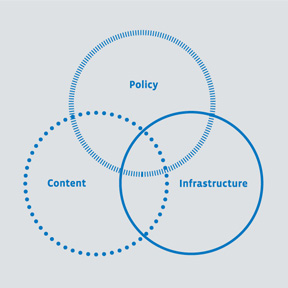
Media Content

GFEM is an advocate to our grantmaker colleagues, encouraging them to fund innovative media arts and public interest media—through support of content, infrastructure, and policy—as a vital form of cultural expression and essential component of our democracy. Whether providing support for documentary or narrative films, or efforts to close the national or international “digital divide,” or supporting advocacy and educational organizations to keep the Internet unrestricted, or highlighting media advancements being made in developing countries, or the evolving media policies in developed nations-GFEM’s aim is to provide small and large funders alike with information to assist them in making decisions about supporting the interconnected areas of media content, infrastructure and policy.
Content
A television program or film puts a face on an issue. A radio news feature or documentary brings a tangible reality to recited facts. Video streamed on a website underscores issues presented in plain text and can move people to action. Whether the content is targeted to public or commercial media outlets, funders need a working understanding of the entire media landscape in order to be most effective in their grantmaking. View Content articles
Infrastructure
A high-speed, unfettered Internet, community-based media arts organizations, PBS, NPR, Public/Educational/Government (PEG) public access stations, or mobile phones are all a part of our media infrastructure—GFEM provides funders with information to help them in supporting media infrastructure, whether local, national, or international. View Infrastructure articles
Policy
Restrictive media policies can curtail access to the content we do have through the infrastructure we currently have in place. There are clear roles for funders to play in helping to address media policy issues and GFEM works to keep funders abreast of the constantly shifting media policy environment. View Policy articles


